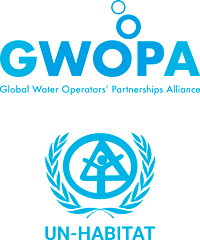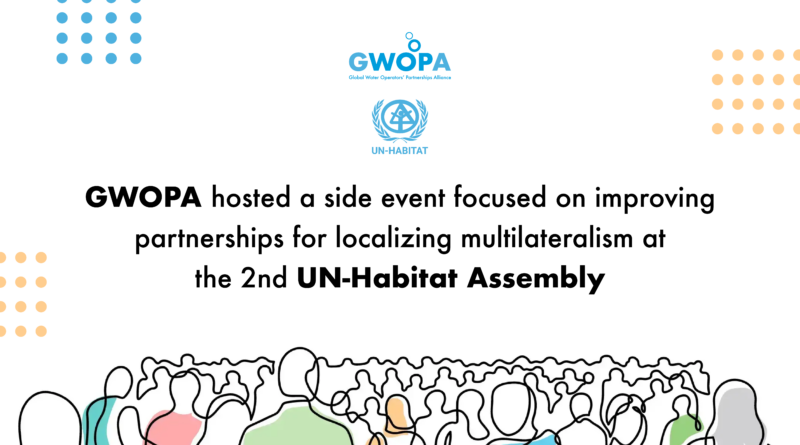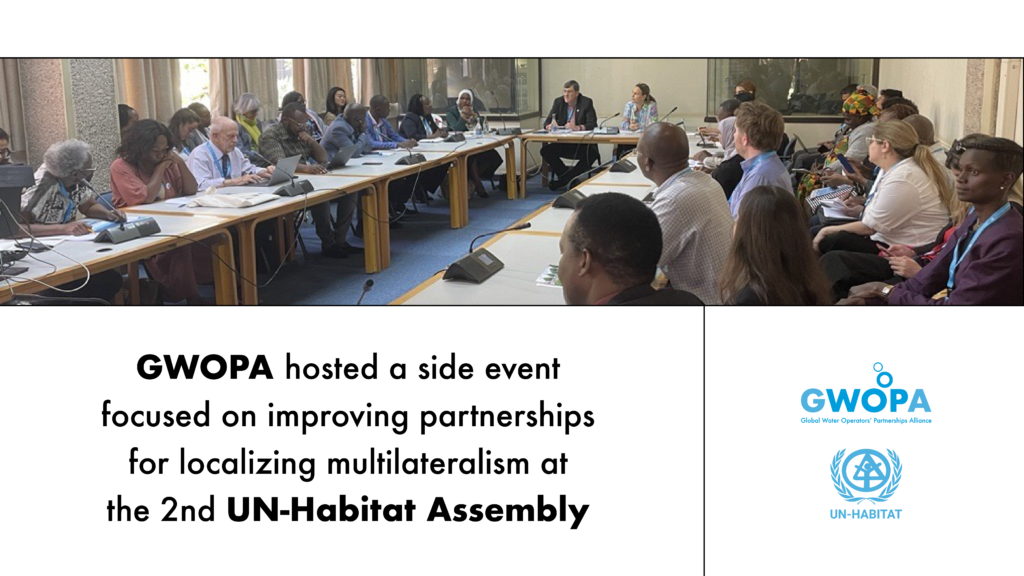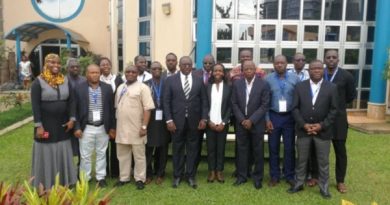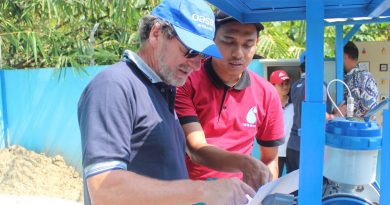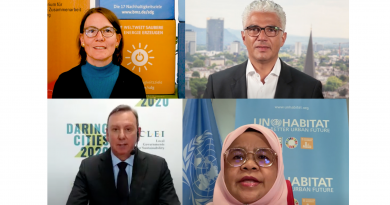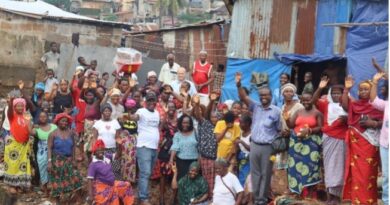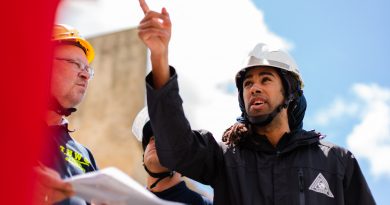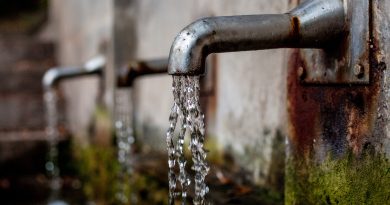GWOPA hosted a side event focused on improving partnerships for localising multilateralism at the 2nd UN-Habitat Assembly
During the second session of the United Nations Habitat Assembly, GWOPA, together with the International Water Association (IWA) and National Water and Sewerage Corporation (NWSC) of Uganda, organised the side event, “Partnerships for Localizing Multilateralism: Implications of the Water Action Agenda on Urban Development.” The event aimed to address the need to initiate actions to roll out the implementation of the Water Action Agenda as the outcome of the UN 2023 Water Conference and its implications on urban development came out of a meeting between Maimunah Mohd Sharif, the Executive Director of UN-Habitat and Henk Ovink, Dutch Special Envoy for International Water Affairs.
UN-Habitat and its partners have made commitments to the Water Action Agenda to accelerate SDG 6, which is closely connected to the efforts being made to achieve SDG 11, specifically regarding urban areas. Access to essential services like water and sanitation (SDG 6) is crucial for achieving safe and affordable housing (SDG 11.1). Due to increasing urbanization and climate change that are putting pressure on water and sanitation systems, the demand for water in cities is expected to increase by 50-70% in the next 30 years. These opportunities include a solidarity-based partnership between water and sanitation operators to accelerate SDG 6 and 11.1 by localizing the water and sanitation service delivery through a multi- stakeholders’ partnership approach, reflecting on the key spirit of multilateralism.
Over 60 people attended the event, including prominent keynote speakers. The discussion focused on collaboration across different sectors and strengthening partnerships, particularly at local levels, leading to sustainable actions toward water issues. The importance of creating inclusive environments and the availability of financial support was also highlighted.
Dr. Rose Kaggwa, National Water and Sewerage Corporation, IWA Board Member, said the collaboration has to be across sectors and boundaries and cater to everyone, underlining the importance of bringing the youth on board as it needs to raise the voices of everyone and improving budget to enable them on board. The representative from Indonesia, Ms. Dian Irawati, Ministry of Public Works and Housing, similarly emphasized that establishing cross-sectoral action is essential to engage all stakeholders, create innovative solutions, and mobilize action through an inclusive decision-making process. Mr. Arnold Cole of UNICEF’s Regional Office for Eastern and Southern Africa said, “UNICEF is working at various levels and areas such as policy, data, and governance. Systems, people, and institutions need to be strengthened. We need to localize the action agenda and coordinate all the stakeholders at all levels. Also, finance is an effective enabler in achieving SDG 6.”
The speakers also discussed the significant role of GWOPA in enhancing partnerships at the local level. Ms. Zainab Mpakiraba, Principal Engineer, National Water and Sewerage Cooperation, Ministry of Water and Environment, Government of Uganda, said, “utilities as a key actor implementation. They need to be inspired. The Global Water Operators’ Partnerships Congress has provided inspiration to utilities to take action by looking at their challenges and getting support to support one another. It is important to secure support, and WOP is across the broader, across stakeholders. This partnership provides support to take action. So, if utilities are supported and sustained, they will be able to offer sustainable solutions.” Likewise, Ms. Rasa Ščeponavičiūtė, Deputy Permanent Representative to UNEP and UN-HABITAT, European Union Delegation to the Republic of Kenya/Representative of the German Government agreed that GWOPA plays a supportive role in providing water services in urban areas and highlighted the need for UN coordination in this sector.
Ms. Åsa Jonsson, Head of the Global Water Operators Partnership Alliance, concluded the discussion by underlining the importance of the multiple efforts already underway to achieve the water commitments of the UN Conference, which is inspiring as we continue to accelerate our work. She recognized the call to be even bolder and articulate in what we expect the actions to achieve and how to monitor and hold ourselves accountable.
